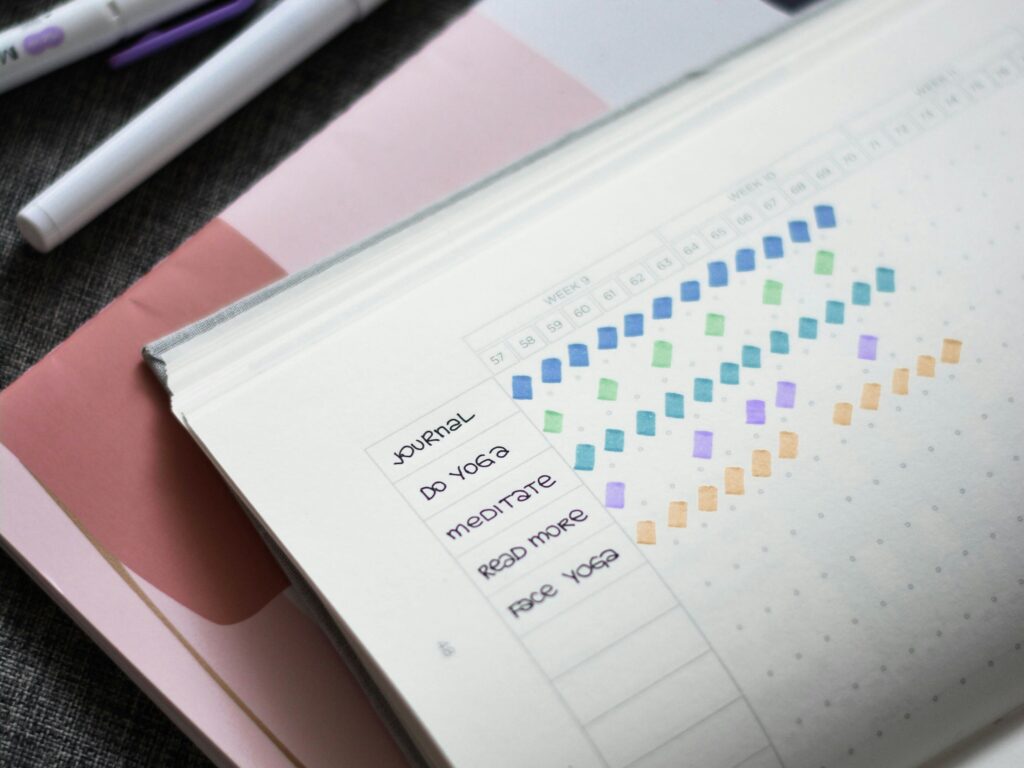How often do you sit down to work, only to find your attention slipping within minutes? The endless scroll of notifications, open tabs multiplying like rabbits, or simply the weight of too many to-dos can quietly erode your focus. It’s not that you lack discipline—it’s that modern life makes sustained concentration feel like climbing a hill with sand under your shoes.
When I first started testing focus challenges for myself, I thought it would be a rigid exercise in productivity. Instead, it became something gentler: a framework to train my attention like a muscle. I noticed I wasn’t just “getting more done,” but also finding clarity in where I wanted to direct my energy.
This article is my way of sharing that experience with you. Together, we’ll explore a 30-Day Focus Challenge—a clear, supportive plan to reclaim your attention, reduce overwhelm, and build habits that bring more flow into your days.
Why a 30-Day Focus Challenge Works
Focus is not just about shutting out distractions. It’s about choosing where to place your attention, consistently and intentionally. A challenge provides structure, but it also builds momentum.
Why 30 days?
- It’s long enough to see meaningful results.
- It’s short enough to feel approachable.
- It allows you to experiment, reflect, and adjust without pressure.
I like to think of it as a reset button: one month to practice focus as a skill rather than hoping it appears when needed.
Key takeaway: A 30-day challenge gives focus structure, consistency, and room to grow.
How to Prepare for the 30-Day Focus Challenge

Preparation sets you up for success. Without it, the challenge becomes another unfinished project.
Step 1: Define Your Why
Before starting, write down why focus matters to you right now. Do you want to finish a creative project? Read more deeply? Simply feel less scattered? Clarity fuels commitment.
Step 2: Choose Your Tools
You don’t need much—just a few simple supports:
- A notebook or journaling app for reflections.
- A timer (Pomodoro-style apps work well).
- A distraction blocker (Freedom or Cold Turkey are popular).
Personally, I use Notion to track daily reflections. It keeps everything in one place and makes progress feel tangible.
Step 3: Create Your Environment
Small shifts in environment reduce friction:
- Clear your desk each evening.
- Put your phone in another room during focus sessions.
- Add one calming element (a plant, candle, or playlist).
Key takeaway: A little preparation multiplies the chances of completing the challenge.
The 30-Day Focus Challenge: Daily Framework

The challenge is divided into four weekly themes. Each week builds on the last so your focus improves gradually.
Week 1: Awareness & Reset
The first week is about noticing where your attention goes.
- Track distractions for 3 days (what, when, why).
- Start each day with a 5-minute reflection: “What’s the one thing I want to focus on today?”
- Limit one distracting habit (e.g., social media before noon).
I remember realizing how often I checked my phone between tasks—not out of need, but out of habit. Awareness alone cut the noise by half.
Week 2: Building Focus Sessions
Now we add structure.
- Practice 2–3 daily focus sessions of 25–45 minutes.
- Use a timer to commit fully during each session.
- End each session by writing a quick note: What worked? What pulled me away?
This is where many people see momentum. It feels less like forcing discipline and more like training a rhythm.
Key takeaway: Short, structured sessions create steady wins that build confidence.
Week 3: Deepening Focus
By now, you’ve built stamina. This week stretches it further.
- Try one longer session (60–90 minutes) on your most important task.
- Reduce multitasking by batching small tasks (emails, admin).
- Add one short mindfulness practice before starting work (breathing, journaling).
I found that a two-minute pause before starting helped anchor my mind. Instead of rushing into tasks, I began with intention.
Week 4: Integration & Flow
The final week is about weaving focus into your daily life.
- Identify your top 3 distractions and design small systems to handle them.
- Reflect at the end of each day: What focus win am I proud of?
- Plan how you’ll continue after the challenge ends.
Focus isn’t about perfection. It’s about noticing when you drift and gently returning to what matters.
Key takeaway: Integration turns a 30-day challenge into a sustainable practice.
Tips to Stay Consistent

Challenges sound exciting on day one but harder by day ten. Here’s how to stay on track:
- Track visibly: Use a calendar or habit tracker. Checking off each day is motivating.
- Stay flexible: If you miss a day, treat it as data, not failure. Restart the next morning.
- Find accountability: Share your challenge with a friend or community.
A quiet laugh—sometimes I’d bribe myself with coffee after a session. Whatever works, as long as it keeps you consistent.
Tools That Support the Challenge
A few tools make the journey smoother:
- Notion or Evernote → for daily logs.
- Forest app → gamifies staying off your phone.
- Freedom → blocks distracting sites.
I’ve linked Forest [here] as an example—if playful accountability helps, it’s worth trying.
Key takeaway: Tools don’t replace focus, but they can reduce friction and make the challenge lighter.
What Happens After 30 Days?
The end of the challenge isn’t the end of focus. It’s a beginning. By now, you’ve learned:
- How long you can sustain attention.
- Which distractions derail you most often.
- Which routines help you feel calm and in control.
Some people repeat the challenge, each time refining it. Others integrate one or two lessons into daily life. Either way, the goal isn’t a perfect streak—it’s lasting clarity.
Conclusion

The 30-Day Focus Challenge is less about productivity and more about presence. It’s a way to gently train your mind to return, again and again, to what matters most. Over a month, you’ll not only sharpen your attention but also find more peace in how you spend your time.
If one idea stays with you, let it be this: focus is not force, it’s practice.
I’d encourage you to begin your own challenge this week. Even one small step can create surprising momentum. And if you’d like to deepen this exploration, my earlier post Books That Changed How I Work. shares titles that pair beautifully with this challenge.




